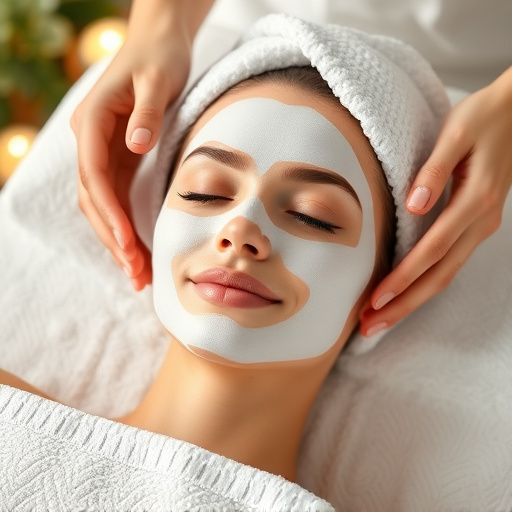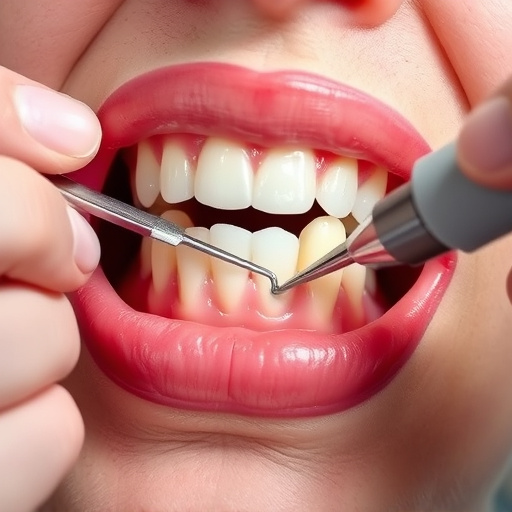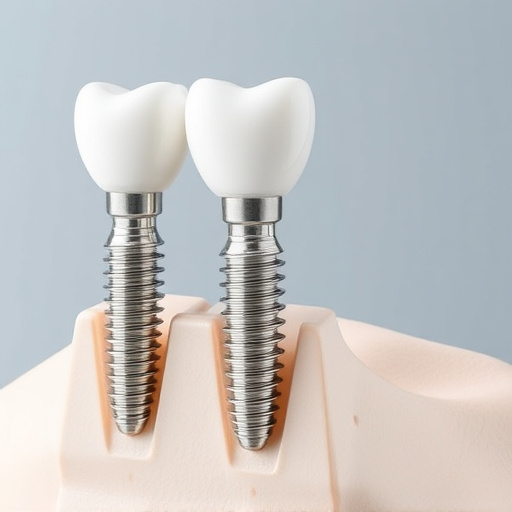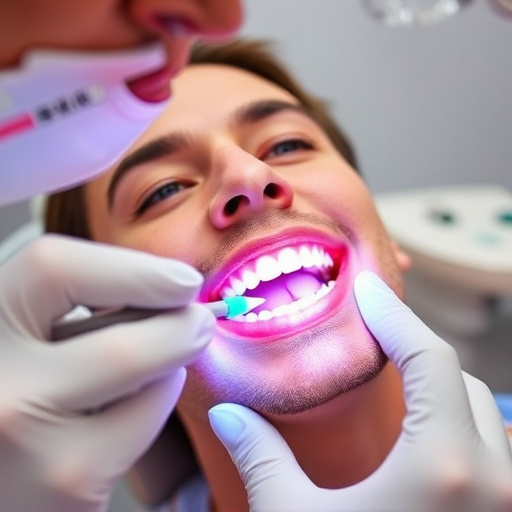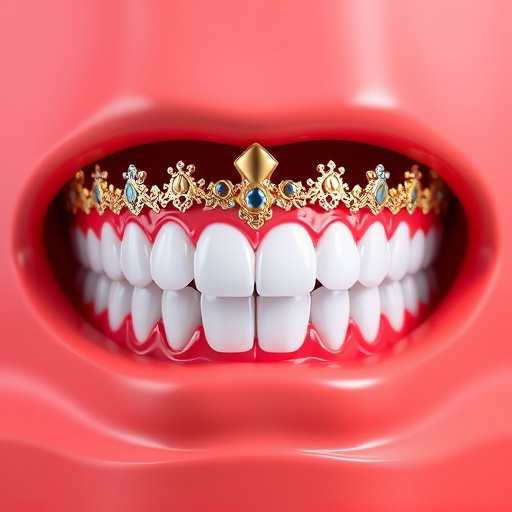Snoring disrupts sleep for both snorers and partners, leading to daytime sleepiness and health risks. Lifestyle changes, dental devices, and surgical procedures are effective snoring treatment options. Consulting healthcare professionals is key to selecting solutions that promote restful nights and improved overall health, especially for severe cases or underlying conditions like OSA.
Snoring affects millions, disrupting sleep quality and relationships. Understanding snoring causes and effects is the first step towards finding effective snoring treatment options. This article explores comprehensive solutions, from lifestyle changes for better sleep hygiene to advanced medical treatments and devices. By delving into these strategies, you’ll discover how to silence snoring and reclaim peaceful nights.
- Understanding Snoring Causes and Effects
- Lifestyle Changes for Better Sleep Quality
- Exploring Medical Treatments and Devices
Understanding Snoring Causes and Effects

Snoring is a common sleep disorder that affects millions worldwide, causing significant disruptions to both the snorer and their bed partner. Understanding its causes and effects is an essential first step in exploring snoring treatment options. Snoring occurs when the upper airway becomes narrowed or blocked during sleep, leading to vibrations of the soft palate and uvula. These vibrations produce the characteristic loud, rhythmic noise.
The primary effects include disrupted sleep patterns for both the snorer and their partner, resulting in excessive daytime sleepiness, decreased quality of life, and potential long-term health risks such as cardiovascular disease. Fortunately, various snoring treatment options are available to address the root causes. These can range from lifestyle changes like weight loss or changing sleeping positions, to dental devices worn during sleep to keep the airway open, and even surgical procedures for more severe cases. Exploring these options with a healthcare professional is crucial in finding an effective solution that promotes restful nights and improved overall health.
Lifestyle Changes for Better Sleep Quality

Snoring can significantly impact sleep quality, leading to various disruptions for both the snorer and their partner. Before considering more advanced snoring treatment options, implementing lifestyle changes can be highly effective in reducing or eliminating snoring and improving overall sleep health. One key aspect is adopting healthier habits such as maintaining a regular sleep schedule, ensuring adequate rest, and practicing good sleep hygiene. Avoiding stimulants like caffeine late in the day and creating a relaxing bedtime routine can also make a significant difference.
Additionally, making adjustments to your diet and physical activity levels can contribute to better sleep quality. Losing weight (if necessary), quitting smoking, and limiting alcohol consumption before bed are all positive steps towards quieter, deeper sleep. Regular oral care, including thorough brushing and flossing, is another essential part of comprehensive dental care that can address snoring rooted in oral health issues. Even simple measures like elevating the head of your bed or using nasal strips can provide relief for mild snorers. For more severe cases, consulting a healthcare professional might lead to exploring innovative solutions like clear aligners or advanced snoring devices, building upon a foundation of improved lifestyle habits and routine oral exams.
Exploring Medical Treatments and Devices

Many medical treatments and devices offer effective snoring treatment options for individuals experiencing sleep disruptions due to snoring. One common approach involves addressing underlying medical conditions, such as obstructive sleep apnea (OSA), which is characterized by pauses in breathing during sleep. Treatments like continuous positive airway pressure (CPAP) machines have been widely used and proven successful in managing OSA, providing a steady flow of air pressure to keep the upper airway open throughout the night.
Beyond CPAP therapy, various devices are available for those seeking alternative snoring treatment options. Mandibular advancement devices (MADs), for instance, are mouthguards that adjust the position of the lower jaw forward, creating a larger opening in the throat and reducing the frequency and severity of snoring. For some, nasal strips or sprays can offer temporary relief by widening the nasal passages and facilitating easier breathing. In certain cases, children’s dentistry or family dentistry professionals may recommend cosmetic fillings or other oral interventions to address structural issues contributing to snoring.
Snoring can significantly disrupt sleep quality and overall well-being, but with a comprehensive approach, effective snoring treatment options are available. By understanding the causes and effects of snoring, implementing lifestyle changes, and exploring medical treatments and devices, folks can navigate their way to quieter, deeper sleep. These snoring treatment options not only enhance sleep disruptions but also contribute to a healthier, more vibrant life.



